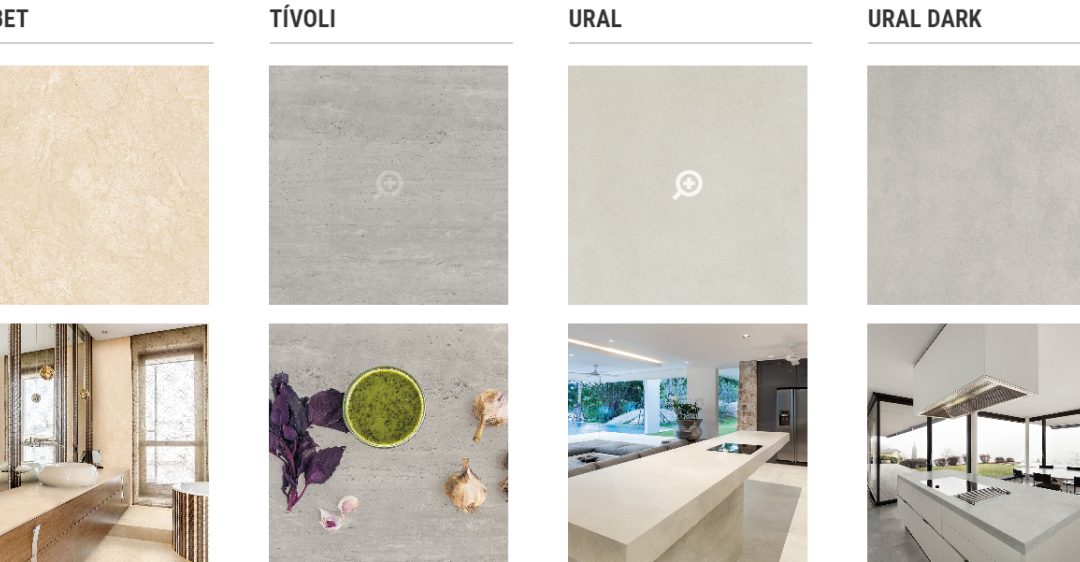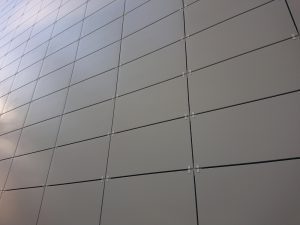In the quest for the perfect kitchen or bathroom countertop, prospective buyers often find themselves at a crossroads, juggling various factors such as durability, aesthetics, and cost. The rise of porcelain countertops as a popular choice has opened up a new realm of possibilities. This comprehensive guide addresses buyers’ dilemmas and provides valuable insights for those looking to invest in porcelain countertops.
Pros & Cons of Porcelain Countertops
Porcelain countertops offer many advantages that cater to the discerning buyer. Among the standout pros, durability tops the list. Porcelain is renowned for its resistance to scratches, stains, and heat, making it an ideal choice for the kitchen. Additionally, its non-porous nature prevents the absorption of liquids, reducing the risk of bacterial growth. The aesthetic appeal of porcelain countertops is undeniable, with a sleek and modern appearance that can elevate the overall look of any space.
However, no material is without its drawbacks. Porcelain countertops can be prone to chipping or cracking if subjected to heavy impacts. While they are more heat-resistant than many alternatives, extreme temperature changes can still pose a risk. Buyers must weigh these pros and cons against their specific needs and usage patterns.
Porcelain Compared to Other Materials
Choosing the right countertop involves comparing different materials for practical reasons. Each material has its own set of characteristics, including how it looks, how durable it is, and how much maintenance it requires. In this section, we’ll look at how porcelain compares to other popular countertop materials.
We’ll break down the strengths and considerations of each option as we navigate the world of countertop materials. Our goal is to help you make an informed decision in selecting the most suitable countertop for your needs.
Porcelain vs Quartz Countertops
Porcelain and quartz countertops, two popular choices for kitchen and bathroom surfaces, exhibit similarities and distinctive characteristics that cater to varying preferences and needs.
Regarding durability and low-maintenance requirements, both porcelain and quartz countertops stand out. However, it’s in their specific attributes that we find the points of divergence. Porcelain, for instance, distinguishes itself by being notably resistant to scratches and stains, making it an excellent option for households where these concerns are top priorities. Its hard and non-porous surface protects against daily wear and tear, ensuring longevity and ease of maintenance.
On the other hand, while also durable and easy to care for, quartz countertops take the lead regarding aesthetic diversity. Quartz offers a broader spectrum of colors and patterns, allowing homeowners to find the perfect match for their design preferences. Whether you’re seeking a classic and subtle appearance or a bold and vibrant statement, quartz provides a versatile array of options to complement any kitchen or bathroom style.
In summary, choosing between porcelain and quartz countertops hinges on your priorities. Porcelain may be ideal if durability and resistance to scratches and stains are paramount.
Conversely, if you prioritize a wide range of aesthetic choices to align with your design vision, quartz emerges as a versatile and visually appealing option.
Porcelain vs Granite Countertops
Granite countertops have enjoyed enduring popularity and are celebrated for their innate beauty and impressive durability. Porcelain countertops emerge as a noteworthy contender despite their long-standing favor, presenting several distinct advantages. Notably, porcelain countertops provide a more consistent appearance than the natural variations in granite. This uniformity can appeal to those seeking a sleek and contemporary aesthetic that seamlessly integrates with various kitchen or bathroom designs.
Moreover, the weight factor is worth considering. Porcelain countertops are generally lighter than their granite counterparts, making them a practical choice for installation and transportation. This feature can simplify the overall installation process and potentially reduce associated costs.
Another practical advantage of porcelain over granite lies in its porosity. Porcelain surfaces are less porous than granite, meaning they are more resistant to absorbing liquids and less prone to staining. This quality adds an extra layer of practicality, especially in kitchens and bathrooms where spills are commonplace.
In essence, while granite holds its own in natural allure and resilience, porcelain countertops step forward with a more uniform appearance, lighter weight, and enhanced resistance to staining. These qualities make porcelain a pragmatic and aesthetically appealing choice for many households seeking a versatile, durable countertop solution.
What is the Cost of a Porcelain Countertop?
Understanding the cost dynamics of porcelain countertops is essential for informed decision-making. The price range can fluctuate, influenced by thickness, design intricacies, and the chosen brand. On average, porcelain tends to be more budget-friendly when compared to the luxurious price tags associated with high-end natural stones like marble.
To provide a clearer picture, let’s delve into some examples. A basic porcelain countertop featuring a standard thickness and a simple design might start at around $50 to $80 per square foot. However, the price can gradually increase as you explore more intricate designs, unique patterns, or a thicker slab. Mid-range porcelain countertops, with a bit more design complexity and thickness, could fall in the range of $80 to $120 per square foot. On the higher end, premium porcelain countertops from renowned brands or those featuring elaborate designs might reach upwards of $120 per square foot.
Comparatively, while porcelain is generally more affordable than marble, it tends to align with the price range of quartz countertops. Quartz, known for its durability and aesthetic versatility, typically starts at around $60 to $100 per square foot. Both porcelain and quartz share a similar cost bracket, making them competitive choices for homeowners with varied budget considerations.
Buyers should approach their decision clearly, understanding their budget constraints and specific countertop requirements. By weighing the desired features against the available budget, individuals can balance cost-effectiveness and achieve the aesthetic and functional goals they envision for their kitchen or bathroom countertops.
Installing countertops – Kitchen or Bathroom?
Practical considerations come to the forefront as you decide where to install your new countertops. Their versatile features make porcelain countertops suitable for both the kitchen and bathroom. Here are some practical advantages of using porcelain in each space.
Porcelain Countertops in the Kitchen
Durability and stain resistance are paramount for a high-traffic area like the kitchen. Porcelain countertops excel in these aspects, making them a practical choice for those who use their kitchens frequently. Their sleek and modern aesthetic can complement various kitchen styles, adding a contemporary touch and reliable functionality. Whether you’re a culinary enthusiast or prefer a more traditional kitchen setup, porcelain countertops offer a sensible and visually appealing solution.
Porcelain Countertops in the Bathroom
Moving to the bathroom, porcelain countertops maintain their practicality, especially considering water and humidity challenges. The non-porous nature of porcelain makes it resistant to water damage, ensuring longevity and ease of maintenance. This characteristic not only protects the countertop but also promotes a hygienic environment by preventing the growth of mold and bacteria. The diverse styles and colors in porcelain further enhance its practicality, allowing you to tailor the countertop to your bathroom design preferences.
Different Styles and Colors of Porcelain Countertops
Porcelain countertops offer many styles, allowing you to tailor your kitchen or bathroom surfaces to match your envisioned aesthetic. Whether you lean towards the timeless elegance of a classic marble appearance, appreciate the industrial charm of a concrete aesthetic, or seek the bold impact of a solid color, porcelain presents an extensive palette to choose from. This diversity ensures that regardless of your taste or the existing design theme in your home, there is a porcelain option that seamlessly integrates into your vision.
Beyond the style choice, porcelain countertops have impressive designs featuring different patterns and finishes. The options are plentiful, from subtle and understated patterns to more intricate designs that make a bold statement. This allows homeowners to personalize their living spaces, infusing a touch of individuality into their kitchens or bathrooms.
Popular collections of porcelain countertops go a step further, offering an extensive range of styles and designs and a variety of finishes to suit various preferences. Whether you desire a glossy, polished surface or a matte finish for a more understated look, the choices are abundant. These collections empower buyers to curate a space that resonates with their unique taste, aligning seamlessly with the overall design scheme of their home.
Here are a few examples of porcelain countertop textures offered by Frontek:
CARTAGE
CAUCASUS
HIMALAYA
LAVENZA
URAL
TIBET
SANTORINI
TEEK
In essence, the diversity in styles, designs, and finishes of porcelain countertops, meets the functional requirements of a surface and allows homeowners to express their personality and style preferences. As you explore the options available, you’ll discover that porcelain countertops are more than just a practical choice; they are a versatile and customizable solution for creating a space that feels uniquely yours.
FAQ about porcelain countertops
Are porcelain countertops durable?
Yes, porcelain countertops are known for their durability. They are resistant to scratches, stains, and heat, making them a long-lasting choice for kitchen and bathroom surfaces.
How to clean porcelain countertops?
Cleaning porcelain countertops is a breeze. Warm water and a mild detergent are usually sufficient for daily maintenance. Avoid abrasive cleaners to preserve the surface’s integrity.
Are porcelain countertops cheaper than quartz?
While prices vary, porcelain countertops often fall within a similar price range as quartz. Consider the specific features and benefits of each material when making a decision.
Is porcelain good for countertops?
Absolutely. Porcelain countertops offer a winning combination of durability, aesthetic appeal, and low maintenance, making them an excellent choice for both kitchens and bathrooms.
Conclusion
Navigating the world of countertops can be daunting, but with the insights provided in this buyer’s guide, the journey becomes more manageable. Whether you’re drawn to the sleek modernity of porcelain or its practical benefits, understanding the pros, cons, and design options will empower you to make an informed decision and bring your vision to life.





